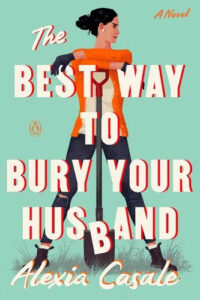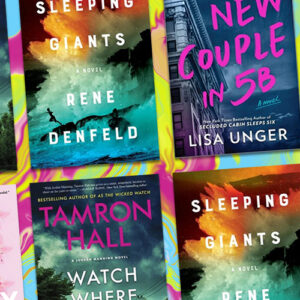In the theatre, plays used to be divided into comedy and tragedy. Historically, however, comedies weren’t necessarily funny—instead, to quote Oscar Wilde, ‘The good ended happily, and the bad unhappily. That is what Fiction means’.
This definition of comedy has faded into the past, but it’s useful to return to when unpicking why comic fiction has come to be contrasted not with tragedy or drama, but with ‘serious’ works. This would be fine if by ‘serious’ we meant sincere, solemn or earnest. But all too often ‘serious’ is understood to denote fiction that is substantial, thoughtful, demanding and meriting deep consideration – with the implication that, by contrast, comic fiction is lightweight, simplistic, shallow and unworthy of a second thought.
Trying to find alternate language in a recent interview with the brilliant Mindy Carlson, we were both struck by the fact that there is no alternative established vocabulary, which helps to explain why comic fiction is so often devalued as unserious. Comic books are far less likely to make award lists, unless the award is specifically for funny fiction.
Still, most comedies have some moments of drama, while most dramas have at least the odd comic moment. Stories with the same emotional ‘tone’ and valence all the way through become boring – our empathy receptors overload, like the receptors in our eyes when we stare at something bright for too long. It’s the move between emotions that keeps stories ticking over for pace, excitement and, above all, our ability to vicariously feel every beat. Creative writing tutors talk about giving readers some relief or breathing space in thrillers by introducing a comic note or odd lighter scene, but it’s more than that.
The laughter makes us feel the sadness all the more by contrast. It’s also truer to how humans work. We use humor— often black humor—to cope in moments of such pain that we feel in danger of shattering.
But while Comedy-Drama is big business in TV and Film world, it’s relatively rare in fiction, where most books sit firmly in one or other camp, albeit with a little seasoning of the emotions from the other palette. Creating a true combination is a challenge both in terms of how the dip between emotional tones will be achieved without breaking the reader out of the story, and in terms of the moral complexities of laughing at serious matters, especially if those issues are trivialised by making the laugh the priority.
This is why The Best Way to Bury Your Husband has an implausible ‘what if’ as its jumping off point—it frees readers to laugh unproblematically because the premise would never happen in the real world. Conversely, four women being killed by abusive (ex)partners in a small geographic area within a single fortnight is merely unlikely. This is what the book’s humor hinges on: the implausible ‘what if’ makes it satire, but the fact that the opposite would be realism allows the book to talk about male violence against women and girls from a palatable distance. By promising laughter as well as sadness, I hope readers will have a good time while also engaging with a very difficult topic.
This balancing act is anything but simple, which helps to explain why true comedy-dramas are relatively rare, though those that succeed often lodge in the reader’s heart and mind forever. Here are some of my favorite recent and long-term examples.
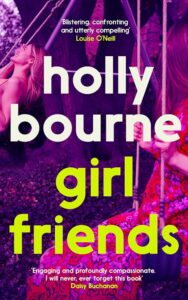
Holly Bourne, Girl Friends
Bourne has a gift for lurching the reader from comedy to tragedy, deftly ripping away the funny surface-level of a scene to reveal the much darker, truer issues beneath. Her work is particularly powerful when highlighting the ways that misogyny shapes our world in ways we don’t even realize until something punctures our view. Suddenly, instead of ‘just joking’, we see harassment, and instead of ‘you’re over-reacting’, we see gaslighting, and instead of ‘you know I hate it when you…’, we see coercive control. Her latest YA novel You Could Be So Pretty, and her latest adult novel Girl Friends, show us the lies we tell ourselves as individuals and as a society. Critically, as well as authentic, hard-hitting moments there are plenty of genuine laughs.
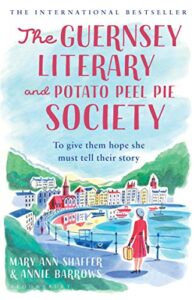
Mary Ann Shaffer & Annie Barrows, The Guernsey Literary and Potato Peel Pie Society
Both the epistolary novel, written by Shaffer but completed by Barrows after Shaffer’s illness and subsequent death, and the tender film adaptation, sit firmly in the comedy-drama arena. Neither shies away from misery of grief and the multiple traumas of war—or the bitter sacrifices that so many made to resist and thwart the Nazis. The book manages to balance truth and warmth without schmaltz. With pain and hope, it’s that rare thing—a truly heartwarming book with no sickly aftertaste.
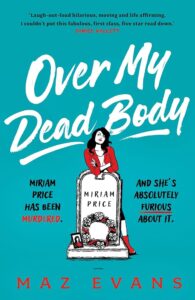
Maz Evans, Over My Dead Body
First Miriam Price discovers she’s dead. Then she’s told that, because she died by misadventure, she’ll have to wait until she would have died of old age to move into her new afterlife home. Not prepared to hang around in the afterlife’s lobby for fifty years, she recruits her octogenarian former neighbor to prove that she was murdered. One slight hitch—her neighbor can only see Miriam because she’s due to die in the next few days. A madcap investigation follows, but under the surface there are real questions about love and, above all, the fact that it’s never too late to change and live the best life we can for whatever time we have left.
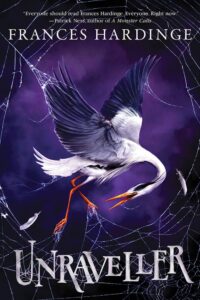
Frances Hardinge, The Unraveller
Hardinge’s work is often categorised as Middle Grade or Young Adult, but has at least as many adult readers—the very best children’s books aren’t just for children but for everyone. Inventive, weird, often macabre, and always interesting, surprising and funny, Hardinge’s stories rest on characters who challenge as well as engage. This is a critical element of comedy-drama—these elements are often combined precisely in order to examine moral complexities. In The Unraveller, Hardinge explores anger—how it can empower us, but also how, when that happens, we must choose to use our newly-achieved power responsibly.
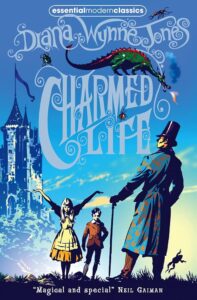
Diane Wynne Jones, Charmed Life
Hardinge sits in a similar place in the market to national treasure Diana Wynne Jones. Although most famous for Howl’s Moving Castle, many readers agree Charmed Life deserves equal acclaim. When Cat Chant’s parents die in a riverboat accident, he’s left with no one but his elder sister ‘to cling to’. Underneath the hilarious fantasy-adventure is a serious look at the challenges children face when the only people they have to cling to care solely about their own best interests and are willing to do anything—including coercing others into terrible acts—to get what they want.
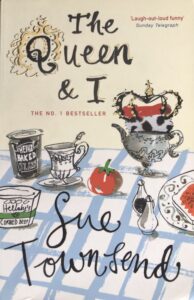
Sue Townsend’s The Queen and I & Alan Bennett’s The Uncommon Reader
Although primarily comedies, this pair of books earns its place on a list about comedy-drama through the use of satire to provide a fresh lens through which to critique the monarchy and British class system. Both offer a hilarious and entirely implausible ‘what if’ opening gambit, enticing us into reconsidering the world we live in. In Townsend’s tale, the Queen wakes one day to find the monarchy has been abolished: soon the whole family is forcibly moved into council accommodation and have to learn how to live as ‘commoners’. In Bennett’s story, the Queen becomes such a voracious and passionate reader, something has got to give—her love of books or her constitutional duties and roles.
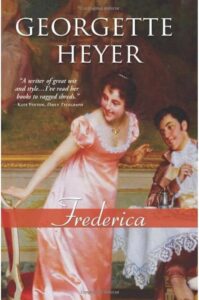
Georgette Heyer, Frederica
Other books that tip to the comedy end of the spectrum, but have depth and drama humming under the surface include many of Georgette Heyer’s historical novels. Like many of her works, Frederica hinges on the protagonist coming to be responsible for younger siblings—a situation Heyer found herself in when her father died in her early twenties. Similarly, in Jesse Sutanto’s Dial A for Aunties the real heart of the story revolves around the complexities of the fact that we all change and so no family stays static, which is complicated enough without the added challenges that immigrant families face in navigating multiple cultures, languages and being geographically dispersed. In Janet Evanovich’s Stephanie Plum series, starting with One for the Money, the heroine hasn’t found her niche in life but is determined that her career will offer challenge and excitement. However, becoming a bounty hunter comes with much more darkness than she anticipated. Evanovich makes some surprising but effective choices regarding when to refuse to pull her punches for the sake of comedy in order to expose what violence does to people in the short- and long-term.
For those looking for non-fiction that combines comedy and drama, try Ursula K Le Guin’s essay-collection-meets-memoir No Time to Spare. For films, try Keeping Mum, Shirley Valentine or Avanti. For a combination of image and text, try feminist cartoonist extraordinaire, Jackie Fleming.
What are your favorite comedy-dramas?
***


